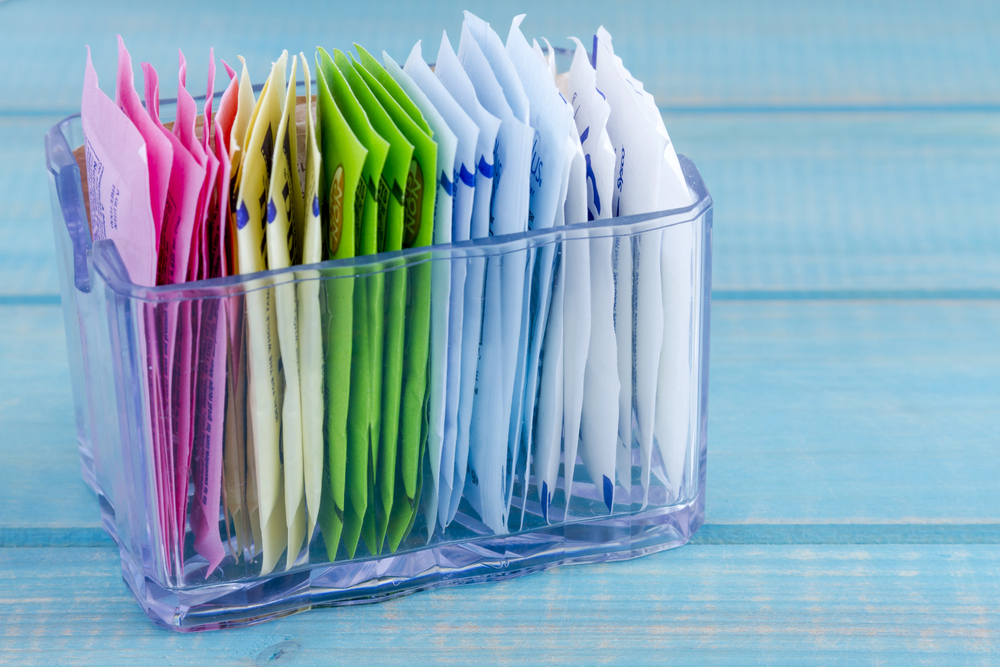
By Rita Evelyne Joshua, Publishing Associate: Researcher and Writer at Save the Water™ | August 23, 2025
Edited by April Day, Publishing Consultant at Save the Water™
Artificial Sweeteners replace regular sugar in foods, drinks, and pharmaceuticals. The artificial sugar market earned $5.87 billion in 2025 and grew 5.37% per year. Researchers found that artificial sugars harm human health and damage ecosystems due to their synthetic makeup. Furthermore, one recent study showed that artificial sugars do not break down like natural sugars. As a result, they remain in the body and environment as “forever chemicals.”
Artificial sugars, also called non-nutritive sweeteners, enhance the flavor of food products. These sweeteners are made using chemical synthesis. In this process, regular sugar is modified with chemicals or non-sugar compounds to build sweeteners.
These synthetic compounds taste 100 to 1000 times sweeter than natural sugars. Additionally, these are lower in calories and used to maintain weight, good oral hygiene, and control blood glucose levels. Therefore, some people consider these sweeteners as a better alternative to regular sugars.
The Food and Drug Administration (FDA) has approved six artificial sweeteners for market use:
Furthermore, people in the US and China consume these sweeteners most widely, with other countries following behind. Among all artificial sweeteners, consumers prefer aspartame and sucralose the most.
Despite the advantages of these artificial sugars, studies show that they harm human health and ecosystems in several ways.
Impact on Human Beings
Cardiovascular diseasesRegular consumption affects heart function in adults. The sweeteners interfere with blood clot formation and cause heart attacks and strokes.Insulin sensitivityLong-term use increases cortisol levels and reactive oxygen in the body. This increase leads to insulin resistance in people.Gut microbiomeArtificial sweeteners kill good gut bacteria. Thus, the toxic by-products of this artificial breakdown disrupt normal metabolism and cause gut inflammation.CancerUS Food and Drug Administration (US FDA) labels aspartame as a possible cancer-causing agent. Other FDA-approved sweeteners may cause breast, kidney, and prostate cancer. These sweeteners interfere with DNA and protein synthesis.
Impact on the Environment
Water treatment plants and factories release artificial sweeteners into the soil and water. Microorganisms in nature cannot break down these compounds completely. Instead, microbes make toxic waste like forever chemicals harmful to the environment.
Terrestrial EcosystemPlants take in artificial sweeteners from wastewater. When plants absorb these chemicals, the sweeteners harm plant metabolism, cause stress, and slow down plant growth.
In addition, these chemicals poison soil bacteria and small soil animals, making the soil toxic.
Aquatic toxicityWhen artificial sweeteners get into rivers and lakes, sunlight breaks them down to make harmful compounds. These compounds affect DNA and later the development of organisms.
Efficient ways of treating Artificial Sweeteners
Regular treatment methods cannot remove artificial sweeteners well. Therefore, scientists are trying new methods to remove these compounds from water. Studies show that special treatments like ozone, activated sludge, Fenton chemicals, and UV light with hydrogen peroxide work well to remove artificial sweeteners from water.
People can follow healthier lifestyles by reducing artificial sweetener consumption. This can be done in a few simple ways:
Lastly, the Government should create policies that reduce artificial sweetener use and promote safer alternatives in the market.